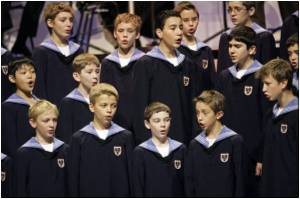Language use can go on a roller-coaster ride during childhood as kids adopt and abandon vernacular language patterns, a North Carolina State University study has found.

One implication of the finding involves education, since teachers often advocate teaching standard English early in a childhood education.
"This approach does seem to work at first but it doesn't last," said Wolfram.
In other words, if a school system wants its students to graduate high school with a strong foundation in standard English, it may have to revisit standard English later in the education curriculum.
Specifically, the researchers found that children come to school speaking English with a relatively high number of vernacular features. Then, through the first four grades of elementary school, those features are reduced, as children adopt more standard English language patterns.
As the children move toward middle school, the level of vernacular rises - though many children often reduce their use of vernacular again as they enter high school.
Advertisement
The researchers noted that, while their data looked solely at African-American children, the findings might be applicable more broadly to other groups.
Advertisement
Source-ANI









